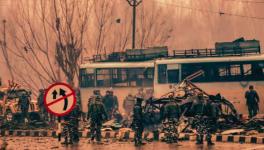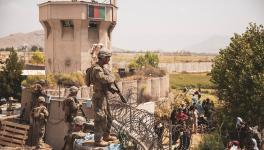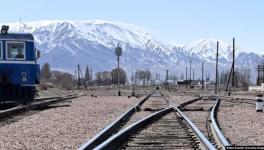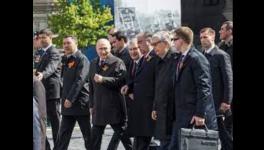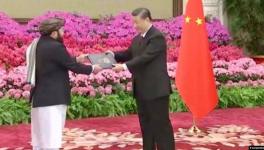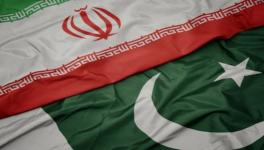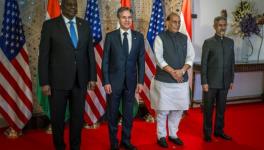Afghanistan: To Counter Relocation, Tehreek-e-Taliban Warns of Joining Hands With ISIS
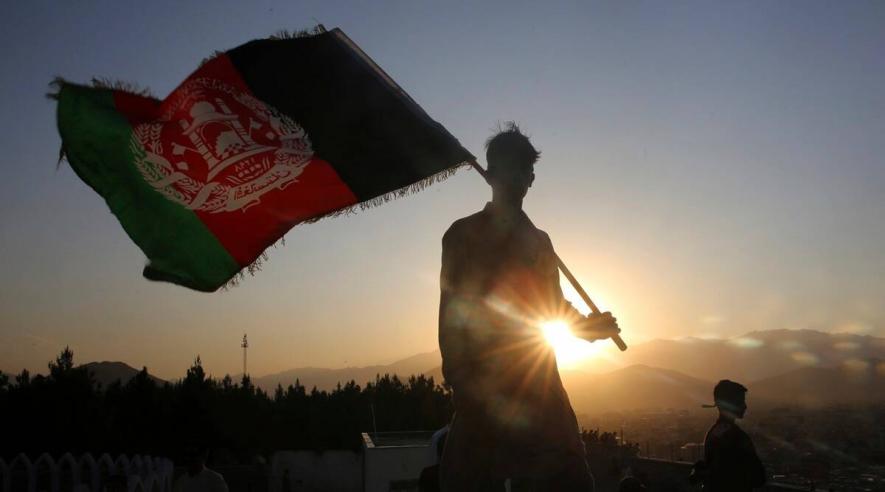
File Image
After a series of warnings over the past two years, the threat seems to be coming true. The threat is of some terror outfits joining hands in Afghanistan for finances, weaponry and logistical support, with some factions even deciding to merge to strengthen themselves.
The most prominent threat has been a recent one by some major factions of the Pakistani Taliban based in Afghanistan. A prominent Pakistani newspaper recently reported that the Pakistani Taliban (Tehreek-e-Taliban Pakistan or TTP) was under increasing pressure not only from the Pakistan armed forces in areas along the 2,670-kilometre-long border with Afghanistan but also within the country by the ruling Afghan Taliban.
In its report, the newspaper The Friday Times said some factions of the TTP may consider joining the Islamic State-Khorasan Province (IS-KP) if they are ‘pushed to the wall’ by the Afghan Taliban. The Afghan regime, which has promised not to allow the land-locked nation to become a hotbed of terrorism, has recently started pressuring TTP, whose sizeable cadres and their families have settled along the Pak-Afghan border, to relocate elsewhere.
The report, which quoted unnamed sources among the extremist outfits, said, “Some factions or groups of the Tehreek-e-Taliban Pakistan (TTP) may contemplate joining ISIS (also known as Daesh) if they are ‘pushed to the wall’ by Afghan Taliban for relocation or shifting away from the Pakistani border.”
The Afghan Taliban has to deal with this ‘serious concern’ if and when they practically start the process of relocation of these TTP cadres, these sources were quoted as saying by the newspaper.
The Afghan Taliban and TTP have been battlefield allies engaged in a war against the US, and earlier with Russia, on Afghan soil for several decades. Certain sections of the Afghan Taliban have also developed a ‘soft corner’ for the TTP cadres and commanders as they have been cooperating until recently. However, the Taliban regime in Kabul, being under international watch over its promises to the global community, has no other way than to take steps to tame terror outfits like TTP, Al Qaeda and Daesh, which have been holed up in Afghanistan for a long time.
But the matter of relocating the TTP acres and their families away from the Pak border has become complicated. Firstly, the TTP leadership has threatened to join hands with Daesh to oppose any such move, even by force. The newspaper quoted observers as saying that Pakistan is using the issue of Afghan refugees to put pressure on the ruling Taliban. Islamabad has repeatedly called on the Taliban to expel the TTP, which has intensified cross-border attacks on Pakistani security forces since the Afghan Taliban gained power.
According to an agreement between Kabul and Islamabad, a ministerial meeting was held in Islamabad earlier this month. The discussion focused on relocating TTP militants to other parts of Afghanistan away from the Pakistan border. During his recent visit, the acting foreign minister of Afghanistan, Amir Khan Muttaqi, reportedly agreed with Islamabad over the relocation of TTP away from Pakistan. However, the execution of such a plan may not go along smoothly as TTP members refuse to leave the areas where they are currently residing.
The TTP cadre may strongly resist the Afghan Taliban from forcibly moving them, as most live near the Pakistani border with their families. The sources said the TTP cadres are just awaiting the final word from their leadership before engaging with Afghan Taliban over the matter of relocation. The TTP Central Shura has, through a letter, conveyed to its commanders and fighters to “not argue over the shifting issue with anyone.” But it has also ordered its fighters not to relocate until they are told to do so by TTP leadership. Currently, thousands of Pakistani Taliban and their families are living in Khost, Paktia and Kunar provinces and have been frequently engaged in conducting terrorist attacks inside Pakistan.
The second major factor that could escalate tension along the Pak-Afghan border is that the IS-KP or Daesh has increased activities in northern areas of Afghanistan after not getting much success in the eastern and western areas. Some months ago, the Taliban governor of Afghanistan’s northern Balkh province, Mohammed Dawood Muzamil, was killed in a suicide bombing. The attack was claimed by the IS-KP. Likewise, the deputy governor of Afghanistan’s northern Badakhshan province was also killed by a car bomb, with IS-KP militants claiming responsibility for the attack. As the IS-KP has been at the receiving end along the Pak-Afghan border, it would be beneficial for it also to join hands with or help TTP fight the Afghan Taliban in this mountainous region.
A third significant factor further complicating this scenario is that the non-Pashtun Tajiks, Uzbeks and other separatist outfits, which have long been camping in Afghanistan, have serious reservations over the relocation of TTP into their areas. These outfits include the Islamic Movement of Uzbekistan and the anti-China Uighur group, the Eastern Turkistan Islamic Movement. Hence the Afghan Taliban regime’s efforts to control or check the Pakistan Taliban may not yield the results expected by Pakistan, India or the global community, including the United Nations.
Simultaneously, on the other side of the border, the Pakistani authorities have been arresting hundreds of Afghans in Islamabad, Rawalpindi and nearby areas in recent weeks for allegedly living in the country illegally. It is unclear how many of them have been freed or deported. Last year, Pakistani law enforcement arrested over 5,000 Afghan refugees and migrants, including women and children. Some were freed, others were deported. These arrests have also led some international refugee and human rights agencies to criticise Islamabad for its treatment of Afghans who have fled Taliban persecution and a devastating humanitarian crisis.
Over 600,000 Afghans are estimated to have fled to Pakistan since the Taliban seized power in Afghanistan in August 2021, joining the several million Afghan refugees and migrants already residing there for decades. These developments have led the situation in Afghanistan, especially along the Pakistan border, to become increasingly restive. It may become further volatile if the TTP reaches an understanding with the Islamist terror outfit IS-KP, as it has threatened. (EOM)
The writer has extensively covered internal security, defence and civil aviation for the Press Trust of India for three decades. Views are personal.
Get the latest reports & analysis with people's perspective on Protests, movements & deep analytical videos, discussions of the current affairs in your Telegram app. Subscribe to NewsClick's Telegram channel & get Real-Time updates on stories, as they get published on our website.










